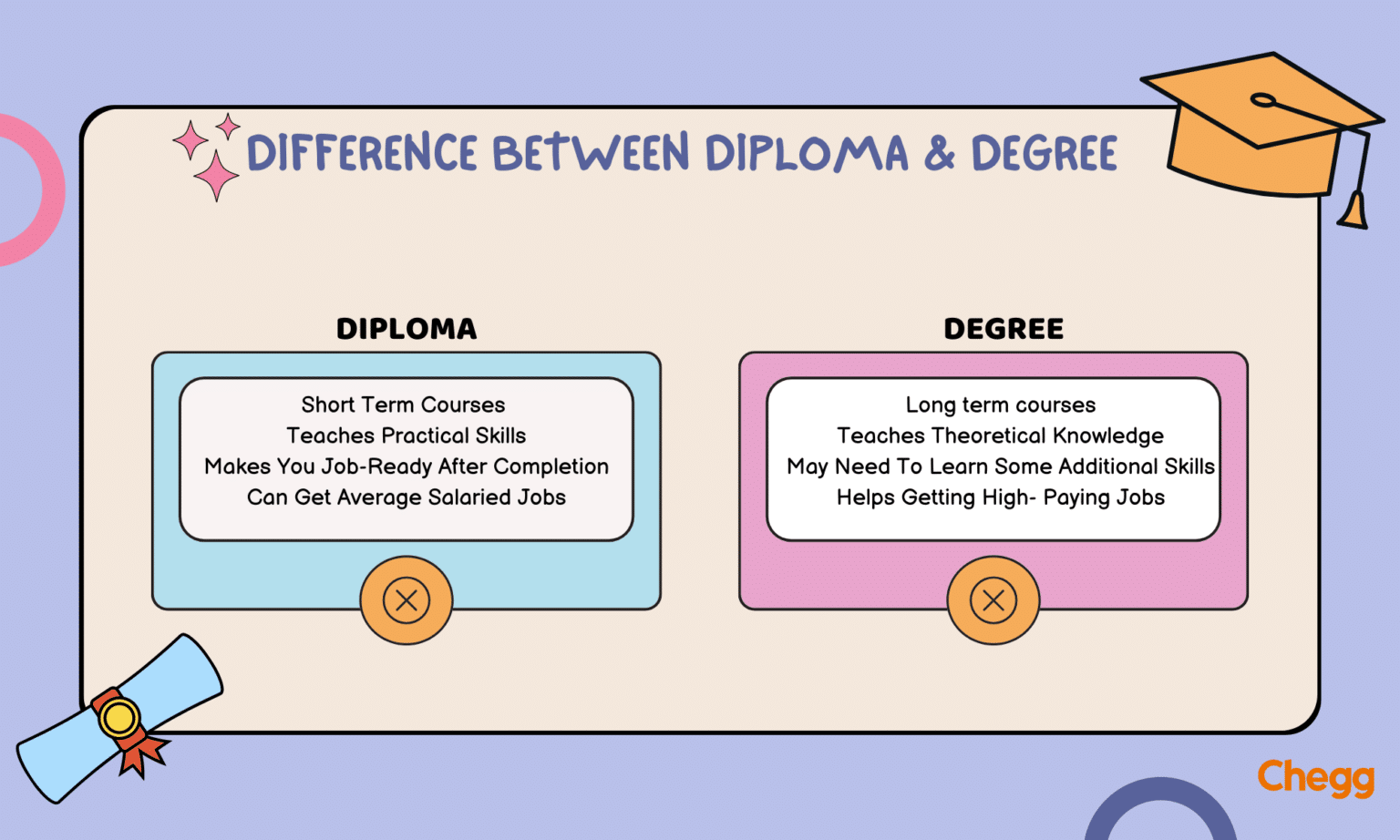
Diploma vs. Degree – Which is Better?
Diploma vs degree is a comparison many students make while making their career decisions. And why should you not weigh diploma vs. degree? Choosing between the two qualifications is an important decision that can shape your career path.
In India, where education significantly contributes to job opportunities, considering the pros and cons of pursuing a diploma rather than a degree is a sensible decision. This piece will help you make an informed choice by covering major differences, advantages and disadvantages, and key considerations regarding diplomas and degrees.

Table Of Content
Understanding Diplomas and Degrees
Advantages and Disadvantages of Diplomas and Degrees
Diploma vs. Degree Salary– Which One Offers Better Salary?
Things to Consider Before Choosing a Diploma or a Degree Programme
How Jaro Education Bridges the Gap
Conclusion
Frequently Asked Questions
Understanding Diplomas and Degrees
Advantages and Disadvantages of Diplomas and Degrees
Diploma vs. Degree Salary– Which One Offers Better Salary?
Your qualification has a direct impact on your salary in India. And the difference in the case of diploma vs degree salary is substantial. While diploma holders earn anywhere between ₹2-4 LPA when they start working, degree holders typically earn ₹3-6 LPA from the get-go.
The diploma vs degree salary also depends much on the field of your study, industry, job role, and experience. Below are some of the factors determining diploma vs. degree salary:
- Skilled work: While diploma holders typically draw lower salaries as compared to degree holders, in skilled work such as plumbing, electrical work, and AC repair, diploma holders can earn better salaries.
- Industry: In the case of technical fields such as IT, engineering, and healthcare, degree holders often get higher-paying job roles than their counterparts. Degrees in business, finance, and management provide significantly better salaries and career opportunities as compared to diploma holders in those fields.
However, it’s important to note here that salary growth is limited; a diploma can get you into the workforce faster. Whereas a degree offers higher earnings potential and growth opportunities in the long term.
Things to Consider Before Choosing a Diploma or a Degree Programme
When choosing between a diploma and a degree programme, it’s critical to take into account factors such as your career goals, opportunities for further education, industry expectations, and the reputation of the institution offering the programme.
- Career goals: Think about your long-term goals and determine which option—diploma vs. degree—better support those ambitions. Consider if the programme will equip you with the necessary skills and qualifications for your career growth.
- Industry requirements: Research what qualifications are typically required in your desired field for the career you want to pursue.
- Further studies: Look into whether your selected diploma can count towards a degree if you choose to continue your studies later on.
- Institution reputation: Research the reputation and accreditation of the institution offering the diploma or degree programme.
How Jaro Education Bridges the Gap
Conclusion
Choosing between a diploma vs a degree depends on your career goals and industry requirements. While diplomas emphasise practical skills and provide a fast-track path to employment, degrees focus on in-depth knowledge and long-term career growth.
Ready to upskill? Begin your journey with Jaro Education today!
Frequently Asked Questions



